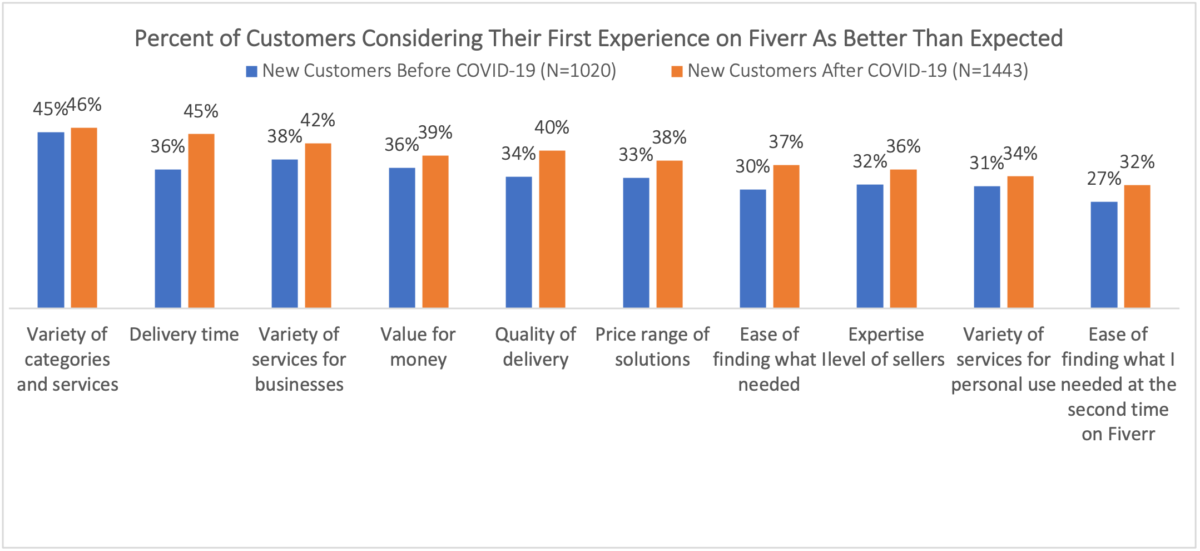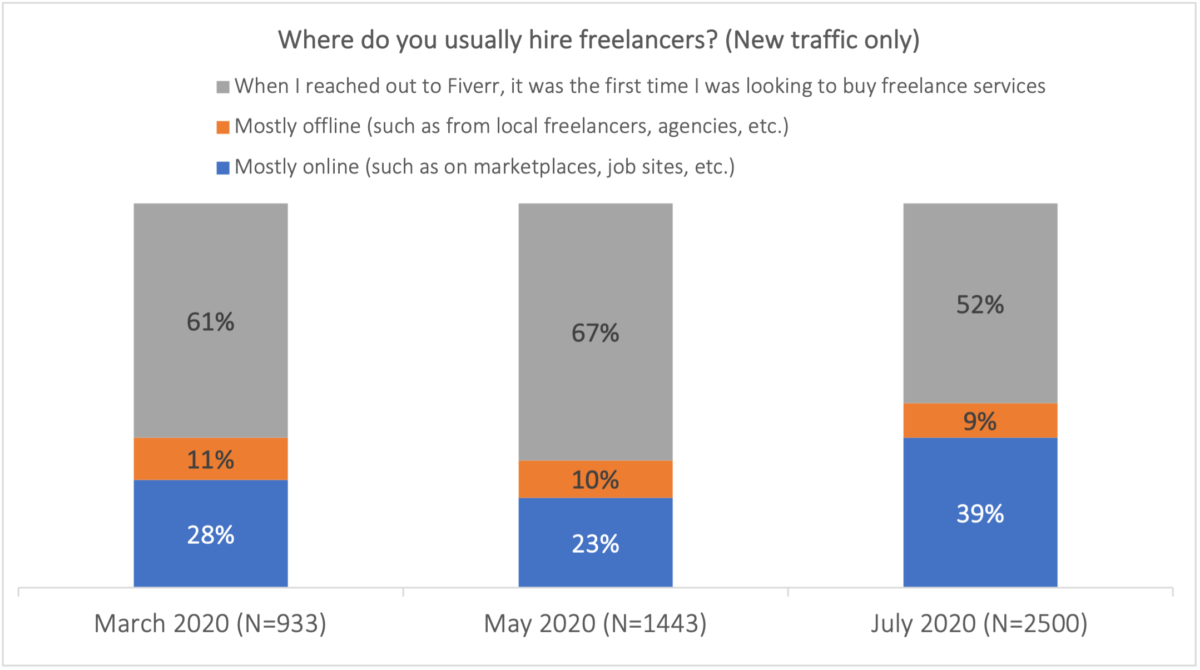Back in the 19th century, at the beginning of the Industrial Revolution, Charles Darwin revolutionised how the world saw and understood itself when he unveiled the science of evolution. The building blocks of his theory showed how species adapt, mutate and evolve to succeed in a changing world. He argued that it’s not the strongest or most intelligent species that survive, but those most adaptable to change. Fast forward to 2020, and humanity is facing a new mutation – a contagious virus, forcing us all to change rapidly to survive.
Since COVID-19 struck, work and social lives have changed dramatically with social distancing and working from home. One of the fastest changes was accelerated digitization and the embracing of digital experiences. McKinsey estimates that COVID-19 has accelerated U.S. e-commerce growth by as much as 10 years in just 3-months1. This begs the question:
”Where does it leave small businesses who need to make this 10 year leap in a few months?”
Well, probably very uncertain, confused and needing guidance.
Customer research is at the core of digital services platform Fiverr’s understanding the customer. So, after the first shock in mid-March, we quickly started to interview, survey and research our customers’ new needs.
Very soon we started to comprehend the profound changes and the resulting challenges our small business customers were experiencing in order to adapt quickly. Our first survey, conducted in March-April 2020 with 900+ new customers since COVID-19, showed that 61% were new to the online world of hiring freelancers and that Fiverr was their first experience.
Additionally, 64% claimed their business didn’t currently have an online presence. In May 2020, in a follow-up survey, this was still the case, among more than 1400+ new customers since COVID-19, 67% were new to the online world of hiring freelancers.
In qualitative research, run simultaneously, we were hearing it from new customers in much more emotional language than previously. Users across the spectrum needed to adapt and were looking for guidance:
- “Nowadays we are facing a crucial time, Coronavirus is affecting the economy day by day. Many of the young generation are insecure about their job or their business, how can Fiverr help my business during this time?”
- Or finding their way through uncharted territory: “Hi. I am currently working in a company, but soon I will be looking to take up an online home based job, Please advise how I can take my business online”
- “I’m a working mother. Since COVID-19, I want to work at home as an online working artist. I love to draw but don’t know where to begin”
- And their initial anxiety of working with online freelancers was palpable: “I was very nervous about hiring a freelancer online. I wasn’t sure if I would be able to “trust the process”.
In May 2020, after two months of investment in new customer experience flows, we conducted new research to try to assess customers’ reactions. We sent a survey to two samples of customers:
1. Using Fiverr for the first time before COVID-19
2. Having only used Fiverr for the first time after COVID-19.
Samples were identical in all other demographic aspects, aside from the date of first joining Fiverr. This research was trying to assess how the newbies’ anxiety affected their reactions to acquiring freelance services online.
One of our hypotheses was that being “forced” by COVID-19 to the online world, would create more negative emotions and reactions. However, we found was the opposite. New customers from after COVID-19 showed significantly better first reactions to the platform during browsing, their decision process and their purchase, than the first reactions of customers who joined before COVID-19.

Why the discrepancy?
We’re talking about two audiences coming to Fiverr for the first time, each one under different circumstances. The first joined before COVID-19 out of their intrinsic motivation vs. the second who were forced to transition to the online world. From a psychological point of view this suggests that Fiverr as a solution relieved the tension and anxiety of new customers who were forced to transition. This made their relief reaction stronger and brought back a sense of control resulting in greater enthusiasm. We were also happy to see that some of the investments designed to meet the exceptional challenges of our new customers pay off.
Going forward, the ultimate question (that we’re hearing a lot lately) is:
Will this behaviour stick and become a habit?
Our latest research provides us cues that this might be the case. In July-August 2020, we conducted a third survey among 2500 new customers since COVID-19. Interestingly enough, we started seeing the needle move for the first time. As mentioned earlier, up until May we saw similar or even slightly higher rates of customers who were new to the online world, in July these rates were starting to shift with 33% less new customers being totally new to online freelance searches. Our research reveals businesses are adapting quickly to change, they are moving online to survive.

To summarise, helping businesses adapt and succeed in the wake of the global upheaval, may lead to habitual behaviour by following a few steps:
- Be more sensitive than usual to first impressions. They are always important, now even more so. It’s essential to think from the point of view of the new customers;
- Invest in customers resources and education, with tutorials, FAQs, explanations etc;
- Add the personal touch, empathetic customer support for current circumstances or going to meet customers where they need the most help.
- Research, measure, learn and fix throughout the process.
What lies ahead?
COVID-19 is still here unfortunately, bringing additional uncertainty to small businesses. Change is not easy, however good experiences could relieve much of the tension and result in starting new habits that assists and prepares customers for an unimagined future.
Back to Darwin, the most adaptive are the ones to survive. So, businesses have been adapting at scale and in a very short time period but a little help from Fiverr doesn’t hurt, right?


